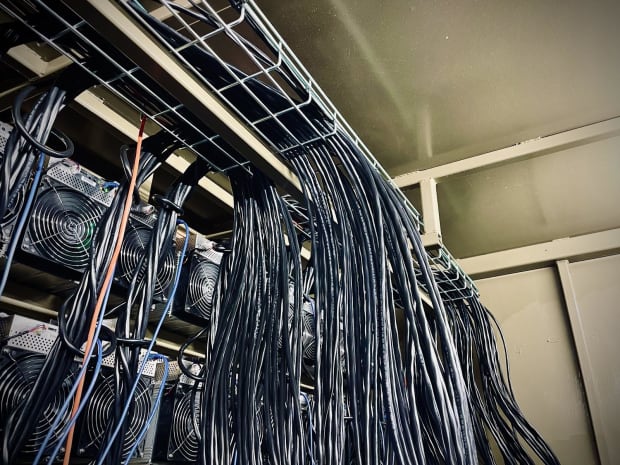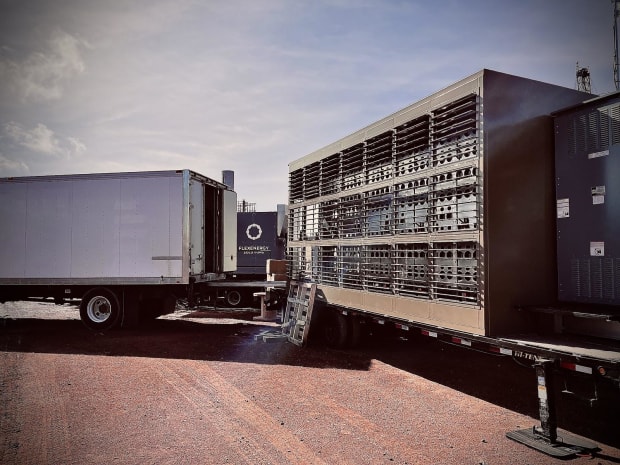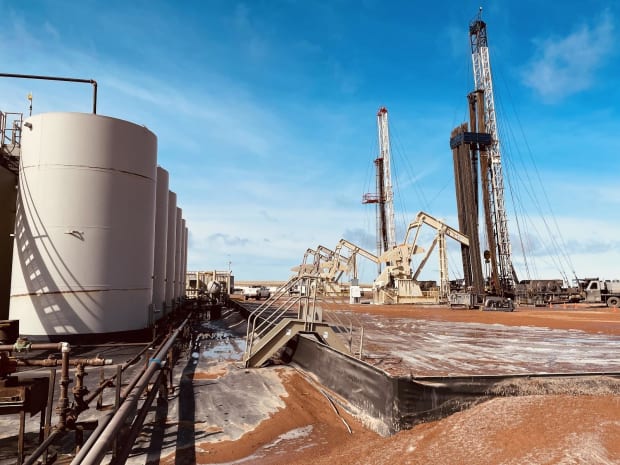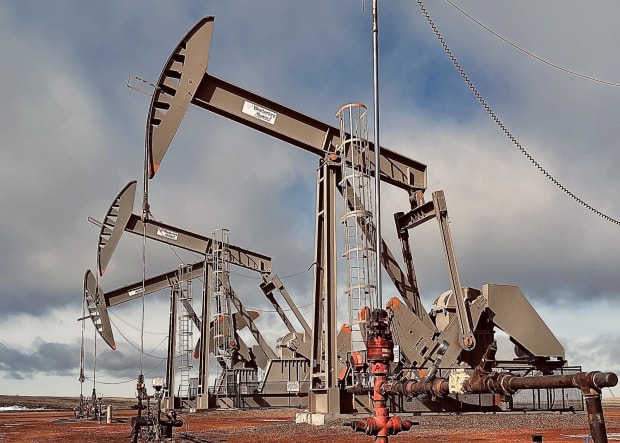With its rapid bitcoin miner deployment at North Dakota operations, Great American Mining shows Bitcoin’s potential to solve energy crises.
It’s official, Bitcoin is too big to ignore. In a geopolitical environment where global superpowers are looking for some answer to bitcoin — whether it be attempting to ban proof-of-work protocols outright or positioning to incentivize coordinated efforts to improve understanding — this much is clear; Bitcoin is a serious topic, and the world’s leaders are now in the position where they can’t afford to not understand it.
Gone are the days of brushing the Bitcoin topic aside as something for hackers, hobbyists or criminals alone. Developments over the past four years have produced a strong argument that Bitcoin is shrugging off death for the umpteenth time, and that it will not be going away. And among all of these developments, perhaps Bitcoin’s growing role in the oil and gas industry is the biggest indicator that it has an undeniable place in the most foundational aspects of our society.
Bitcoin And Oil Fields
Recently I was invited by the Great American Mining (GAM) team to visit one of their bitcoin mining sites in North Dakota, given the opportunity to see firsthand what this symbiotic relationship of energy markets and bitcoin mining really looks like.
Let me tell you, they did not disappoint.
While the whole of the world panicked around the spread of a virus that was accompanied by an attempted pause of entire economies, and energy markets felt logistical nightmares in shipping and saw a boom in costs — while, simultaneously, there has been growing hysteria around Bitcoin’s energy consumption — GAM has embodied one of the Bitcoin community’s favorite mottos: “Stay humble, stack sats.”
Well, in GAM’s case, I would reword this to: “Stay humble, stack racks.” Racks and racks of ASIC miners.

Stackin’ Racks
GAM is an American Bitcoin mining company that aims to provide a solution to oil and gas fields that have stranded energy that cannot be brought to market. You see, part of the process of pumping oil out of the earth comes with many complex issues — it’s not like the oil just exists in a perfect solution beneath the surface that is ready for immediate use. The associated expense with extracting oil has resulted in significant flaring of natural gas in North Dakota. This has led to flaring throughout the Williston Basin, among other places.
“Oil field miners operate near or at well heads where oil or natural gas liquids are produced and dry natural gas is generated as a waste product. This natural gas cannot be economically brought to market and is therefore either vented or flared. When vented, natural gas (mostly methane) escapes directly into the atmosphere, causing ~31 times the greenhouse effect of CO2 over a 100-year period.”
–CoinShares January 2022 report on Bitcoin mining’s energy and carbon impact
GAM has been devising a strategy that allows for a plug-and-play option for oil wells that are flaring natural gas. No need to wait for government subsidies — bitcoin miners have a built in incentive to solve this environmental problem.
Instead of burning the natural gas with zero return potential, GAM offers a solution that is nice and simple for the wells by providing trailer-mounted miners (let’s call them “TraMMs” for short) that can be rapidly deployed onsite and accompanied by generators that get tied in to the natural gas. Once operation ready, the generators are set to an economic consumption rate so that the bitcoin miners can operate as close to 100% of the time with as little maintenance and tweaking as possible (both on the generator side, as well as the mining racks themselves).

What was really awe-inspiring to me was, well… really there were a few things that inspired awe from me. Firstly, the design of the TraMMs is done in-house. Not only are they capable of housing 150 to 300 bitcoin mining rigs per individual TraMM, but they come complete with an automated system that manages the temperature of the miners — if it gets too hot, the exhaust vents (it’s just hot air, environmentalists need not panic) automatically open or close to allow heat to leave the container.
The second thing was my discussions with Wes Sellner, GAM’s director of operations.
“North Dakota’s gas gathering and processing infrastructure cannot keep up with the natural gas production or keep pace with the booms and busts of the oil and gas industry,” according to Sellner.
This means these operators can produce oil and ship it faster than consumers can make use of the byproducts that are stranded. Which is a dynamic that is also backed up by both a report from 2014 of North Dakota’s strong potential production capacity into the future, as well as a report from the Industrial Commision of the State of North Dakota’s hearing, aimed at explaining the reduction of gas flaring in the state. And that was well before the curveball that was thrown to the oil and gas industry with activities in Western Russia (which I discussed here).
Thirdly, I was inspired by GAM’s growth. In December 2019, GAM had one TraMM operational. Then, heading into the lockdowns, it kept its head down, and worked on refining and perfecting its trailers, and growing its fleet to three just one year later by January 2021.
A global pandemic and the halting of economies clearly did little to stymy the ambitions of Bitcoiners. By February 2022 (11 months later), its fleet now numbers 27 fully-deployed TraMMs in total. With its mining rigs operational at 12 different sites across North Dakota, that’s just over 20 megawatts of hash rate. According to the company, GAM is currently able to produce four new units per month, and is working on an expansion to its manufacturing facility to scale this up to 12 per month by the fall of this year.
What Does The Future Hold?
And now, for the really, really exciting part. Consider the current landscape we find ourselves in. Fossil fuels have been demonized aggressively over the past 10 years, at least. The U.S. sanctioned Russian oil, while the EU struggles to figure out what to do, as Russia was its largest fossil fuel provider. Meanwhile India is forced by circumstance to buy discounted Russian crude. The United States has found itself having to aggressively rethink domestic oil and gas production, in conjunction with its northern neighbors in Canada.
As noted, natural gas is a consistent byproduct of oil production, and GAM is proving there is high demand for its product in the state of North Dakota. GAM provides an opportunity for oil producers to monetize their gas flaring instead of just “lighting money on fire,” as Sellner likes to put it. North Dakota’s oil producers can’t flare their gas fast enough to meet oil demand. The demand for this strong, synergistic pairing of fossil fuels and bitcoin mining has plenty of running room without ramped-up domestic production.

The future looks bright for this young company. While most of the world still attacks bitcoin mining’s implied environmental damage, this company and others like it are quietly solving massive energy and environmental problems that will only continue as our need for oil and energy grows.
There’s a particular type of beauty that accompanies North Dakota’s oil and gas operations while viewed by crossing the country in the middle of the night. If you’re ever visiting this region of the United States, I recommend traveling through the New Town area when the evening is at its zenith, and the world feels still. You’ll know you’re approaching when you notice the recognizable atmospheric glow of city lights against the night sky… only it isn’t city lights that are glowing.
It’s the flaring towers.
This is a guest post by Mike Hobart. Opinions expressed are entirely their own and do not necessarily reflect those of BTC Inc or Bitcoin Magazine.




